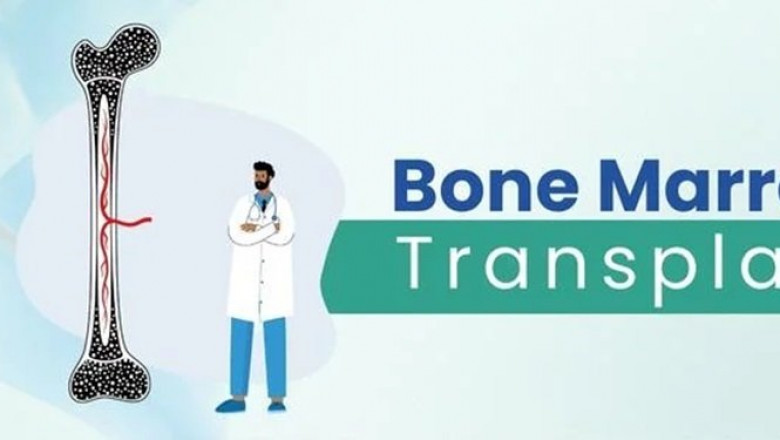views
A bone marrow transplant can be a life-saving procedure for individuals battling severe blood disorders, including leukemia, lymphoma, and aplastic anemia. However, one of the biggest concerns for patients and their families is understanding the financial implications of this treatment.
India has emerged as a global leader in medical tourism, particularly for bone marrow transplants. The country's advanced healthcare infrastructure, coupled with affordable pricing, makes it a preferred destination for international patients. But what exactly determines the bone marrow transplant cost in India? This guide will provide an in-depth breakdown of the factors influencing costs, ways to reduce expenses, and how to choose the best hospital for treatment.
Why India for Bone Marrow Transplants?
India has gained recognition as a top medical destination due to its numerous advantages, including:
✔ Affordable yet high-quality medical care – Costs are significantly lower compared to Western countries, without compromising on treatment quality. ✔ Experienced hematologists and oncologists – Indian hospitals are home to specialists trained at prestigious institutions worldwide. ✔ World-class hospitals with advanced facilities – Many hospitals are equipped with state-of-the-art technology and adhere to international medical standards. ✔ Comprehensive patient support and recovery plans – From pre-transplant evaluations to post-treatment care, Indian hospitals provide holistic support to patients.
Factors Affecting the Bone Marrow Transplant Cost in India
The cost of a bone marrow transplant depends on several factors. Understanding these variables can help patients and families better prepare for the financial aspects of the procedure.
1. Type of Transplant
The type of bone marrow transplant significantly impacts the overall cost:
✅ Autologous Transplant (Using the Patient’s Own Stem Cells):
-
Lower cost since it does not require a donor.
-
Suitable for patients with certain types of lymphoma and multiple myeloma.
✅ Allogeneic Transplant (Using Donor Stem Cells):
-
Higher cost due to donor-related procedures, including HLA matching and harvesting stem cells.
-
Recommended for conditions like leukemia and severe aplastic anemia.
2. Hospital Selection
Premier hospitals may charge more, but they offer advanced treatment options, higher success rates, and better post-transplant care. Accredited hospitals with experienced teams ensure better outcomes and a lower risk of complications.
3. Pre-Transplant Procedures
Before the transplant, patients undergo a series of tests, including:
-
Blood and tissue matching to ensure donor compatibility (for allogeneic transplants).
-
Chemotherapy or radiation therapy to eliminate diseased bone marrow.
-
Pre-admission consultations and diagnostics, which contribute to the total expense.
4. Post-Transplant Care
Recovery after a bone marrow transplant requires long-term follow-ups, including:
-
Medications to prevent infections and manage complications.
-
Regular monitoring to ensure the new bone marrow functions properly.
-
Rehabilitation and nutritional support, which play a crucial role in recovery.
Estimated Cost Breakdown of Bone Marrow Transplants in India
One of the biggest reasons why India is a preferred destination for bone marrow transplants is its affordability. Below is an approximate cost breakdown:
Compared to Western nations, where costs often exceed $100,000, India provides world-class treatment at a fraction of the price.
How to Reduce Bone Marrow Transplant Costs in India?
While the treatment is more affordable in India, patients can explore additional ways to manage and reduce costs:
✅ 1. Check Insurance Coverage
Many insurance companies cover bone marrow transplant costs, either fully or partially. Patients should verify their policy details to understand what expenses are included.
✅ 2. Government & NGO Assistance
Various government schemes and non-profit organizations offer financial assistance for bone marrow transplants. Some notable programs include:
-
Ayushman Bharat Yojana (for eligible Indian citizens)
-
NGOs like the Indian Cancer Society and CrowdFunding platforms that provide support
✅ 3. Crowdfunding Options
Patients can raise funds through online crowdfunding platforms such as:
-
Ketto
-
Milaap
-
GoFundMe
These platforms help patients collect donations from family, friends, and well-wishers worldwide.
✅ 4. Choosing Cost-Effective Hospitals
While top-tier hospitals may charge more, several budget-friendly hospitals in India offer high-quality bone marrow transplants at lower prices without compromising patient care.
Top Hospitals for Bone Marrow Transplants in India
Selecting the right hospital is essential for ensuring quality treatment and a higher success rate. Some of the most renowned hospitals for bone marrow transplants in India include:
🏥 Apollo Hospitals – Chennai & Delhi (Renowned for advanced hematology treatments) 🏥 Tata Memorial Hospital – Mumbai (Specialized in cancer-related transplants) 🏥 Medanta – The Medicity – Gurgaon (Known for its cutting-edge research and treatment facilities) 🏥 Fortis Memorial Research Institute – Gurgaon (Offers international-level patient care)
Each of these hospitals provides high success rates, world-class medical infrastructure, and experienced transplant teams.
Conclusion: Making an Informed Decision
A bone marrow transplant is a life-changing procedure that offers hope to patients with severe blood disorders. However, understanding the financial aspects of the treatment is crucial for better planning.
India stands out as a leading destination for bone marrow transplants, thanks to its affordable pricing, world-class medical expertise, and comprehensive patient care. By choosing the right hospital, exploring financial aid options, and understanding cost factors, patients can undergo this critical procedure without excessive financial strain.
If you or a loved one is considering a bone marrow transplant in India, consulting a trusted medical expert will help you navigate the journey smoothly. With proper planning, expert care, and financial assistance, a successful transplant and a healthier future are within reach.






















Comments
0 comment